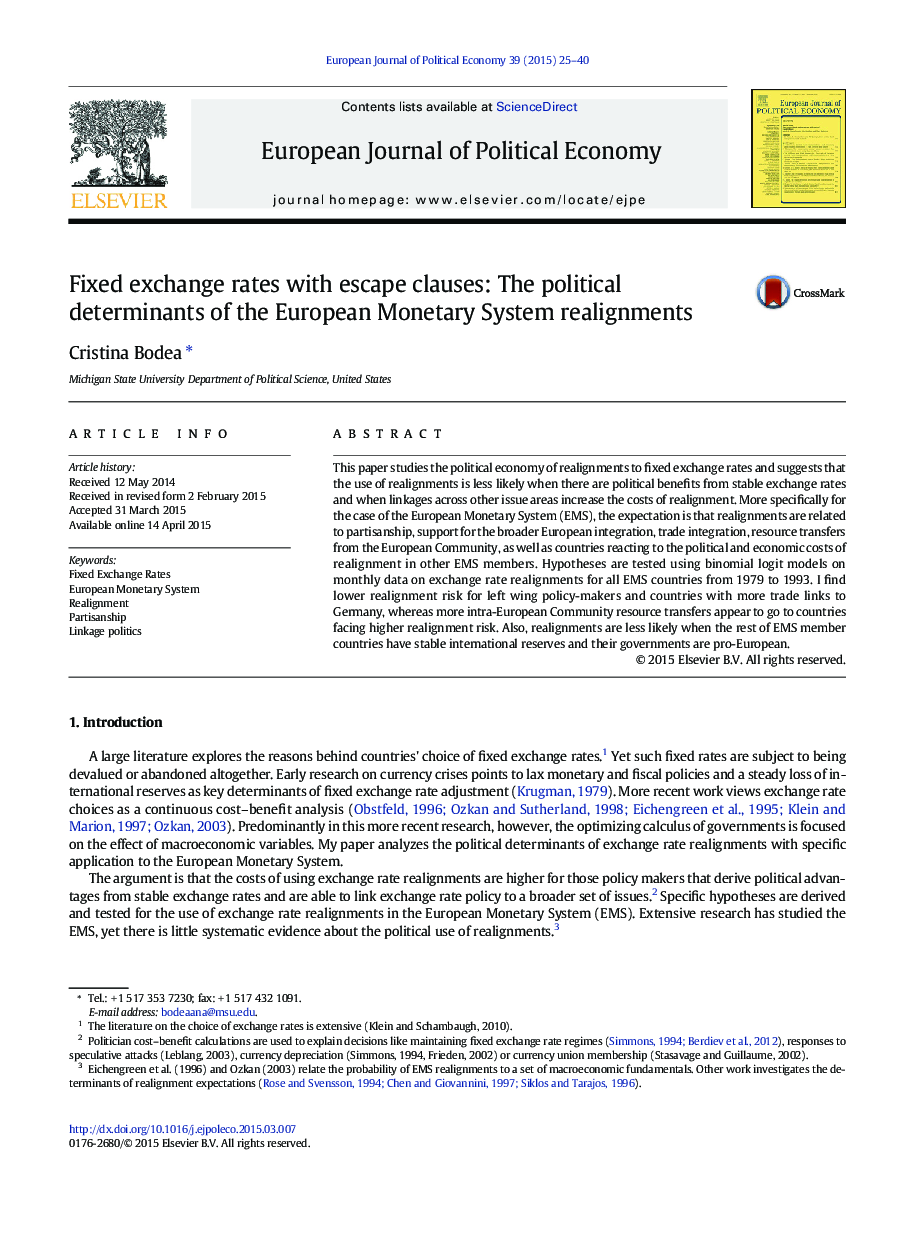| Article ID | Journal | Published Year | Pages | File Type |
|---|---|---|---|---|
| 5067923 | European Journal of Political Economy | 2015 | 16 Pages |
â¢The paper investigates the use of realignments in the European Monetary System.â¢More left wing representation and trade links with Germany reduce realignment risk.â¢So does broad support for the European Community, but this effect is less robust.â¢Transfers from the European Community go to countries with high realignment risk.â¢Countries respond to each other's political and economic costs of realignment.
This paper studies the political economy of realignments to fixed exchange rates and suggests that the use of realignments is less likely when there are political benefits from stable exchange rates and when linkages across other issue areas increase the costs of realignment. More specifically for the case of the European Monetary System (EMS), the expectation is that realignments are related to partisanship, support for the broader European integration, trade integration, resource transfers from the European Community, as well as countries reacting to the political and economic costs of realignment in other EMS members. Hypotheses are tested using binomial logit models on monthly data on exchange rate realignments for all EMS countries from 1979 to 1993. I find lower realignment risk for left wing policy-makers and countries with more trade links to Germany, whereas more intra-European Community resource transfers appear to go to countries facing higher realignment risk. Also, realignments are less likely when the rest of EMS member countries have stable international reserves and their governments are pro-European.
